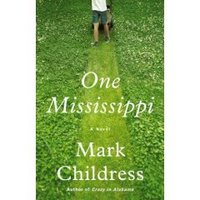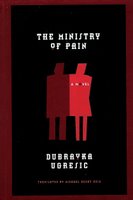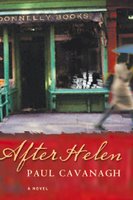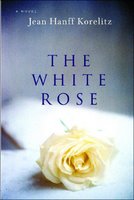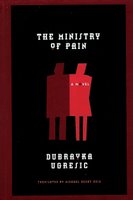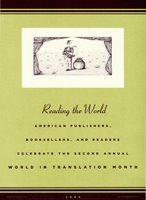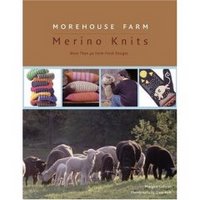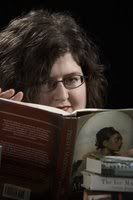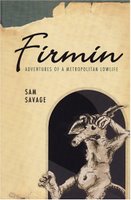 Firmin begins life at a disadvantage. Born the runt of the litter to an alcholic mother sheltering in the basement of an independent bookstore, Firmin begins to eat pages of books in order to survive. When Firmin realizes the books he’s digested have given him the ability to read, his love affair with literature is born. Existing through a daily diet of nourishing classics, Firmin quickly becomes an outsider existing in a no-mans land between what he is (a rat) and what he wishes to be (human). Sam Savage’s Firmin: Adventures of a Metropolitan Lowlife can be read as a quirky little tale about the book-loving rat in all of us, or as a philosophical look at life. It is a witty novella and a powerful homage to a life lived through and around books and the enduring influence of great writers.
Firmin begins life at a disadvantage. Born the runt of the litter to an alcholic mother sheltering in the basement of an independent bookstore, Firmin begins to eat pages of books in order to survive. When Firmin realizes the books he’s digested have given him the ability to read, his love affair with literature is born. Existing through a daily diet of nourishing classics, Firmin quickly becomes an outsider existing in a no-mans land between what he is (a rat) and what he wishes to be (human). Sam Savage’s Firmin: Adventures of a Metropolitan Lowlife can be read as a quirky little tale about the book-loving rat in all of us, or as a philosophical look at life. It is a witty novella and a powerful homage to a life lived through and around books and the enduring influence of great writers.Firmin’s initial consumption is rather indiscriminate, one book tasting much like any other. Soon however, Firmin notices subtle flavour differences between works and as his understanding of literature develops, his need for literal consumption diminishes. Firmin reads and “lets the books center my dreams, and sometimes I dreamed myself back into the books.” Any true booklover has often wished to disappear into a book; the weak becomes strong, the housebound travels and the voiceless thunders speeches to the masses. Firmin finds relief from his outsider status by becoming the characters, “I must constantly remind myself, sometimes by means of a rap on the head, that Eisenhower is real while Oliver Twist is not.”
The name Firmin comes from the Latin Firminus meaning “firm” and is the name of several early saints, but Firmin the rat is anything but firm or saintly. He worships at and is torn between two temples; Pembroke Books and the Rialto movie theatre; knowledge and lust; sages and his “lovelies” (the ethereal actresses that parade nude through the late night movies at the Rialto).
Savage positions before the reader these two elemental aspects of humanity; the earthy nature of the body and the spiritual realm of the mind. By casting this dichotomy into the body of a conscious rat, he is able to mock our delusions and perceptions. Holding a mirror up to our souls in the character of Firmin, we question our essential selves and our understanding of reality. Should our perceptions be taken as true or, like Firmin, do we delude ourselves into believing we are other than what we are?
Both of Firmin’s temples offer an escape from reality and the pull from both is strong. By casting the theatre into the role of seducer, Savage resurrects the worry that movies will destroy books. While today it is clear that books have survived the assault of movies and television, the concern for the relevance of the great works of literature in modern society continues.
Savage holds a doctoral degree in Philosophy from Yale University so it should come as no surprise that this slim volume is full of more questions than answers. Whether Firmin, capable of consciousness and immersion into the great works of fiction, is a better mirror for humanity’s frailities because he is a rat is difficult to state. What is apparent is that Firmin: Adventures of a Metropolitan Lowlife merits repeated readings for Savage has filled its pages with much food for thought. This gem of a book should be a treasured addition to any bibliophile’s bookshelf.
See the review posted at ReadySteadyBooks - Firmin.
